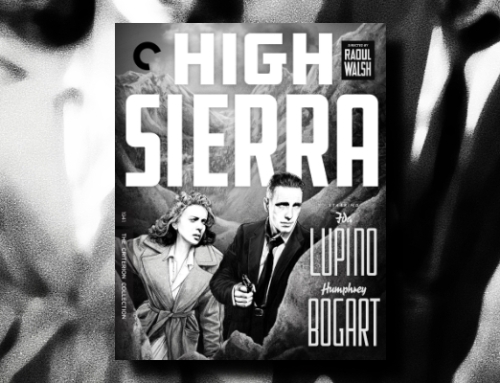
Touki bouki
d. Djibril Diop Mambéty (1973)
The Criterion Collection
 Djibril Diop Mambéty’s 1973 film Touki bouki was first released by The Criterion Collection in late 2012 as part of their boxset Martin Scorsese’s World Cinema Project No. 1. It’s a fantastic boxset that includes five other gems of world cinema, caringly restored and preserved by The World Cinema Project. Criterion has released two more six-film sets in this series since 2012, as well as a handful of standalone releases for films that benefited from The World Cinema Project, like Black Girl, Mandabi, The Cloud-Capped Star, and A Brighter Summer Day. May The World Cinema Project stay strong, and may The Criterion Collection continue to help us see these films in our homes.
Djibril Diop Mambéty’s 1973 film Touki bouki was first released by The Criterion Collection in late 2012 as part of their boxset Martin Scorsese’s World Cinema Project No. 1. It’s a fantastic boxset that includes five other gems of world cinema, caringly restored and preserved by The World Cinema Project. Criterion has released two more six-film sets in this series since 2012, as well as a handful of standalone releases for films that benefited from The World Cinema Project, like Black Girl, Mandabi, The Cloud-Capped Star, and A Brighter Summer Day. May The World Cinema Project stay strong, and may The Criterion Collection continue to help us see these films in our homes.
I am glad that, even though the film was already made available in the box set, The Criterion Collection is now releasing a standalone edition of Touki bouki. For one thing, this means interested viewers can see the film without investing in a larger box set. I hope that opens the film up to more people. And that brings up the other reason I’m glad they’re re-releasing this on its own: the film is too important to sit still in a box, and presenting it as such does, in some ways, diminish it. Often heralded as the greatest African film of all time, Touki bouki should stand apart. It is nice to have such an important film get individual attention. Again, I hope this brings more people to the film.
I’m also glad this release has occurred right on the heels of Ousmane Sembène’s Mandabi, which Criterion released just last month, keeping my focus on African — indeed, Senegalese — cinema. Both films take place in Dakar and critique the French post-colonial condition. Both are important and rich. But where Mandabi is relatively straightforward (as straightforward as a plot that works through bureaucracy can be), Touki bouki is fragmented and impressionistic.
For the first bit, it is not clear how each scene relates to the one before it. The main link is, of all things, cattle and horns.



From images of the pastoral to the violent, a young couple emerges in the seemingly slapdash narrative thread. This is Mory and Anta.

Beguiled by the glamour of the culture that has controlled their land for generations, they are tired of Dakar and dream of making enough money to buy passage to France. Throughout the film, Joséphine Baker’s voice singing “Paris Paris Paris, sur terre ce petit coin de paradis” accompanies the characters.

Like the narrative, the song feels fragmented, jolting back in a loop throughout. All of these fractured images and sounds comment on the world in which Mory and Anta live as well as on their lives in that world. Touki bouki is a rich film that rewards multiple rewatches as we see hidden connections as well as more loose threads.
For people who already own the film in the World Cinema Project boxset, it is important to note that I noticed no discernible difference in the presentation of the film itself. I’m not necessarily the biggest stickler for the minute details some people can see, but the color and the quality were the same to my eyes. This standalone release also comes with all of the features included in the boxset, like Scorsese’s own brief introduction to the film and an interview with filmmaker Abderrahmane Sissako. However, it does come with a few additions that might tempt you. For one, there’s a 2012 interview featuring Mambéty’s brother, musician Wasis Diop, and niece, filmmaker Mati Diop. Stronger still is another short film by Mambéty, 1968’s Contras’ City. This short film presents the various cultural contrasts in Dakar and serves as a nice introduction to some themes Mambéty explores in Touki bouki.
Whether in the boxset or in this standalone edition, though, I highly recommend picking it up. Do a double feature with Mandabi to explore post-colonial Dakar from the perspective of two generations . . . or watch it on its own — but watch it.








Leave a Reply